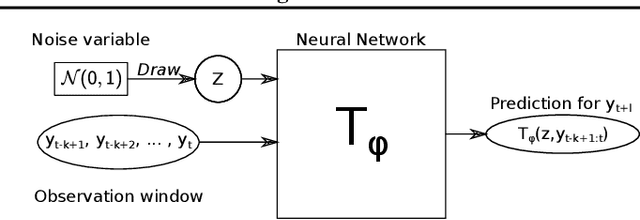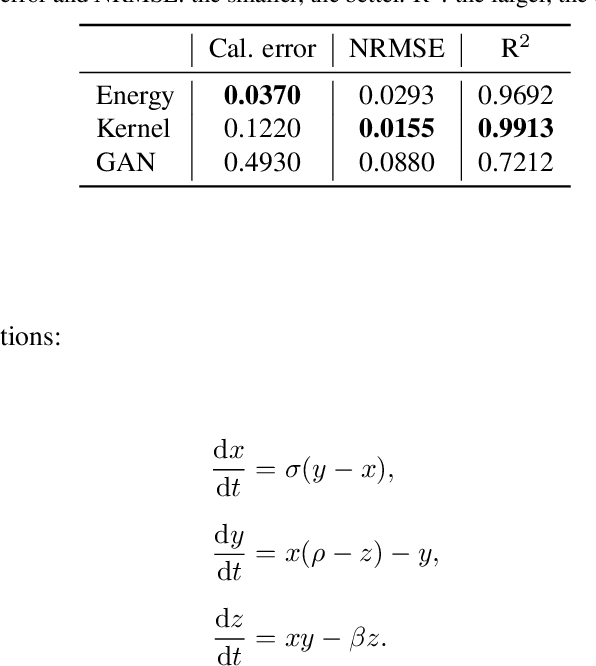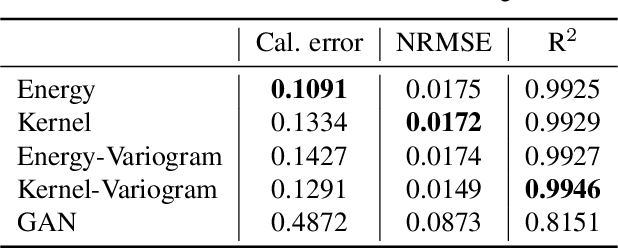Probabilistic Forecasting with Conditional Generative Networks via Scoring Rule Minimization
Paper and Code
Dec 15, 2021



Probabilistic forecasting consists of stating a probability distribution for a future outcome based on past observations. In meteorology, ensembles of physics-based numerical models are run to get such distribution. Usually, performance is evaluated with scoring rules, functions of the forecast distribution and the observed outcome. With some scoring rules, calibration and sharpness of the forecast can be assessed at the same time. In deep learning, generative neural networks parametrize distributions on high-dimensional spaces and easily allow sampling by transforming draws from a latent variable. Conditional generative networks additionally constrain the distribution on an input variable. In this manuscript, we perform probabilistic forecasting with conditional generative networks trained to minimize scoring rule values. In contrast to Generative Adversarial Networks (GANs), no discriminator is required and training is stable. We perform experiments on two chaotic models and a global dataset of weather observations; results are satisfactory and better calibrated than what achieved by GANs.
 Add to Chrome
Add to Chrome Add to Firefox
Add to Firefox Add to Edge
Add to Edge